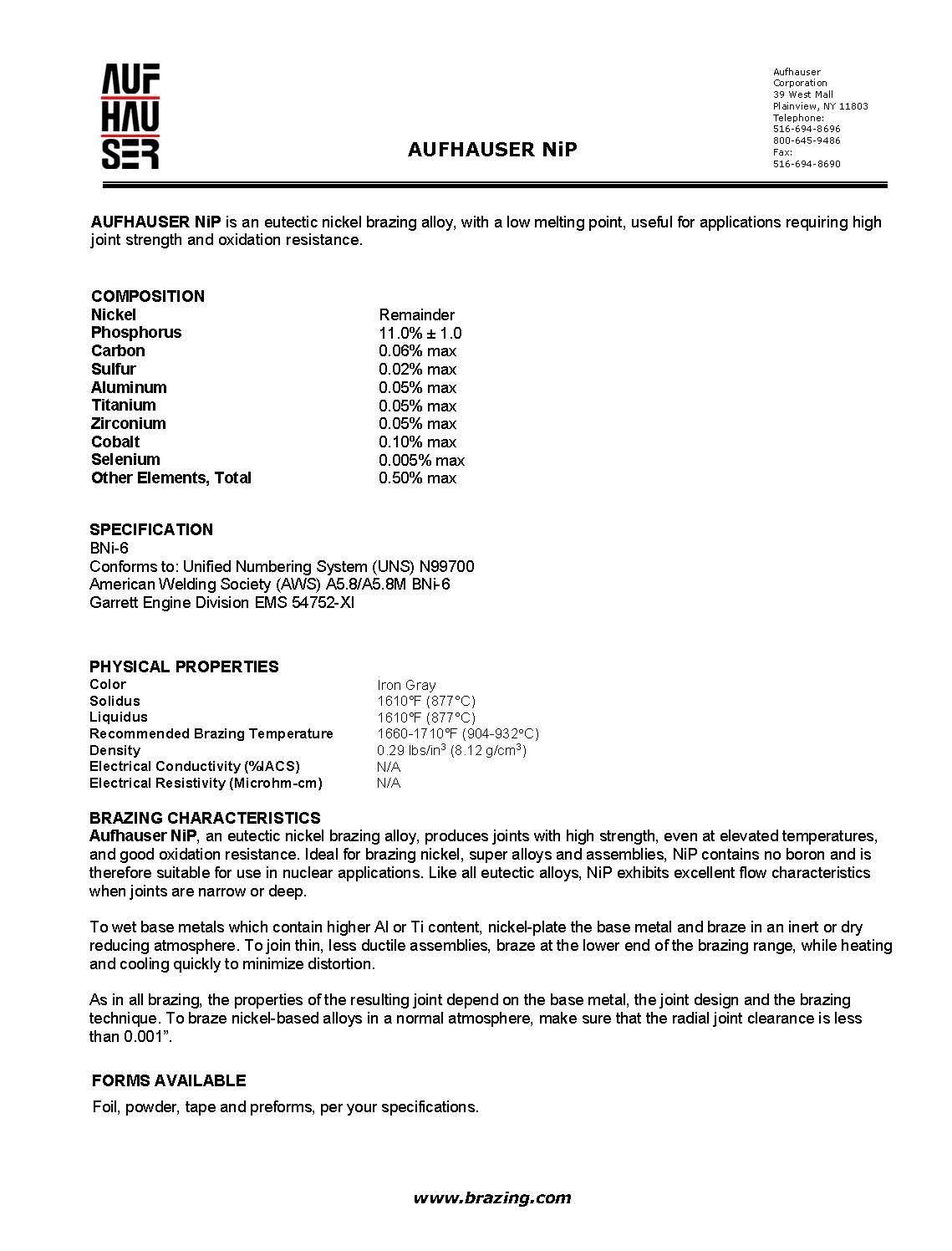Nickel Brazing Alloy NiP
Nominal Chemical
Composition
REFERENCES
Nickel Brazing Alloy ProceduresINTRODUCTION
Aufhauser NiP is an eutectic nickel brazing alloy, with a low melting point, useful for applications requiring high joint strength and oxidation resistance.
APPLICATIONS
BRAZING CHARACTERISTICS
Aufhauser NiP, an eutectic nickel brazing alloy, produces joints with high strength, even at elevated temperatures, and good oxidation resistance. Ideal for brazing nickel, super alloys and assemblies, NiP contains no boron and is therefore suitable for use in nuclear applications. Like all eutectic alloys, NiP exhibits excellent flow characteristics when joints are narrow or deep.
To wet base metals which contain higher Al or Ti content, nickel-plate the base metal and braze in an inert or dry reducing atmosphere. To join thin, less ductile assemblies, braze at the lower end of the brazing range, while heating and cooling quickly to minimize distortion.
As in all brazing, the properties of the resulting joint depend on the base metal, the joint design and the brazing technique. To braze nickel-based alloys in a normal atmosphere, make sure that the radial joint clearance is less than 0.001".
Chemical Composition
| Nickel | Phosphorus | Carbon | Sulfur | Aluminum | Titanium | Zirconium | Cobalt | Selenium | Other Elements |
|---|---|---|---|---|---|---|---|---|---|
| Remainder | 11.0% ± 1 | 0.06% * | 0.02% * | 0.05% * | 0.05% * | 0.05% * | 0.10% * | 0.005% * | 0.50% * total |
PHYSICAL and MECHANICAL PROPERTIES
| Color | Iron gray |
| Liquidus | 1610°F (877°C) |
| Solidus | 1610°F (877°C) |
| Recommended Brazing Temperature | 1660-1710°F (904-932°C) |
| Density | 0.29 lbs/in3 (8.12 g/cm3) |
| Electrical Conductivity (%IACS) | N/A |
| Electrical Resistivity (Microhm-cm) | N/A |
SPECIFICATIONS MEET OR EXCEED |
| BNi-6 |
| Unified Numbering System (UNS) N99700 |
| American Welding Society (AWS) A5.8/A5.8M BNi-6 |
| Garrett Engine Division EMS 54752-XI |
STANDARD SIZES AND FORMS
| Foil, Powder, Tape and Preforms - per your specification |

